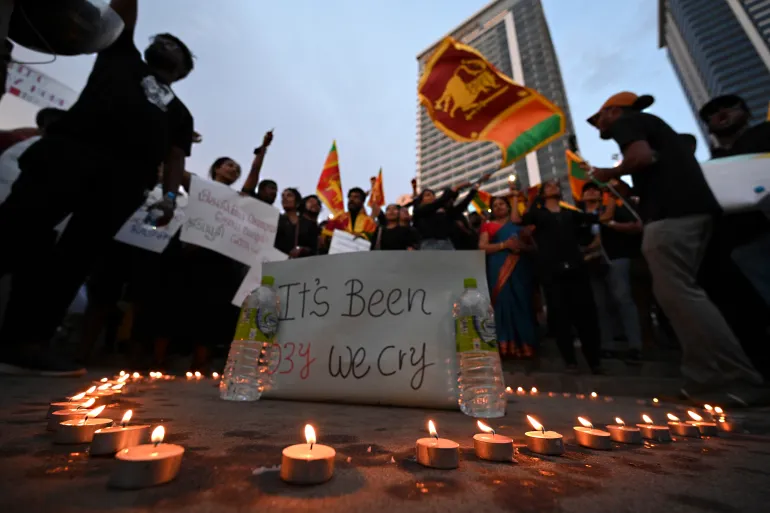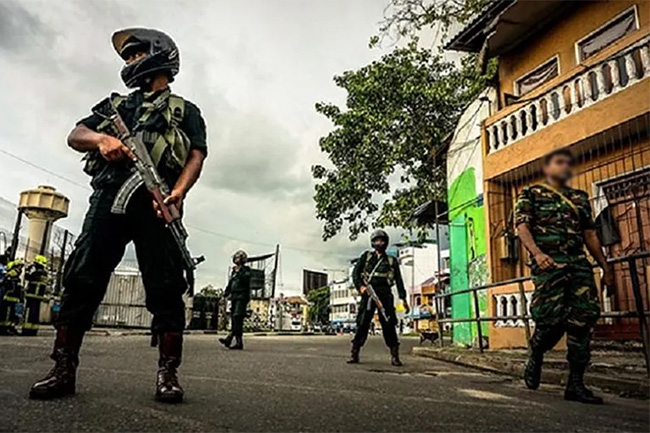President Anura Kumara Dissanayake, in his recent remarks to Parliament, outlined how the government acted on specific intelligence to pre-empt what could have been a terrorist attack in Arugam Bay. He described how security authorities had received advance information about a potential plot targeting this internationally renowned tourist destination and convened urgent meetings—even at 1.00 a.m.—to make rapid decisions and deploy preventive measures. According to him, the government had also conducted early assessments of possible disruptions targeting key tourism zones and activated pre-emptive plans to avert instability.
These revelations reflect a broader shift in the country’s security posture. After the end of the war in May 2009, Sri Lanka gradually slipped into a sense of complacency. The defeat of the LTTE created the illusion that Sri Lanka was insulated from terrorism. That illusion shattered in April 2019 with the Easter Sunday bombings.

Since then, Sri Lanka has found itself compelled once again to adopt a more vigilant security stance. The increased presence of Israeli nationals among tourists in the country has emerged as a new consideration in assessing the threat environment. For the government, they are foreign nationals visiting Sri Lanka. Then, it is duty -bound to provide them security. Also, in case an act of terrorism is committed against them, it will deal a heavy blow to tourism which is the lifeline of cash-strapped Sri Lanka. Recent bombings in New Delhi and Islamabad have further shown that South Asia remains vulnerable to extremist violence.

In this context, Sri Lanka’s security mechanisms have been recalibrated to respond more swiftly to emerging threats. Ground intelligence has been strengthened, inter-agency coordination is being refined, and early-warning processes have been updated to avoid a repeat of the failures that contributed to the 2019 tragedy. The country’s tourism sector—critical to post-crisis economic revival—remains a central concern, given its high visibility and concentration of foreign visitors.
Following the Easter Sunday attacks, seven major committees and commissions examined the incident and issued reports, each assessing different aspects of responsibility, intelligence coordination and institutional failure. These include the Parliamentary Select Committee Report of October 23, 2019; the Presidential Commission of Inquiry (PCoI) Report issued on January 21, 2021; the Special Investigation Board Report by Justice Vijith Malalgoda dated June 10, 2019; the Commission of Inquiry into allegations raised in the Channel 4 Dispatches documentary, chaired by Justice Imam and released on June 25, 2024; the Commission of Inquiry into Intelligence Coordination and Investigative Processes, chaired by Retired Judge A.N.J. de Alwis and released on September 14, 2024; the Sectoral Oversight Committee on National Security Report of February 19, 2020; and the 2020 Federal Bureau of Investigation (FBI) Report.

A striking commonality across all these reports is the absence of any finding that points toward an “elusive mastermind” behind the attacks. Despite this, the narrative has gained traction within political and religious circles, most prominently through the continued assertions of Cardinal Malcolm Ranjith. While the call for accountability is legitimate, the persistence of a theory unsupported by evidence risks distorting public discourse and undermining faith in the conclusions of both domestic and international investigators.
Notably, the FBI’s contribution to Sri Lanka’s probe was internationally recognised. Their investigation, which included advanced digital forensics and cross-border intelligence tracing, received the award for the most outstanding international investigation. The distinction highlights the thoroughness of the global support extended to Sri Lanka and underscores the credibility of the analytical processes used.

Despite this extensive body of authoritative findings, the digital age has made it increasingly easy for misinformation and politically motivated narratives to proliferate. Disinformation thrives in online echo chambers, where repetition often substitutes for evidence and emotional appeal overrides fact. Public understanding of security-related matters is therefore often shaped not by verified information but by competing political interpretations and sensationalised claims.
This presents a serious challenge. A nation that has endured one of the world’s most devastating terrorist attacks cannot afford to let public debate be guided by rumours or unsupported theories. The real security threats facing Sri Lanka today come not from mythical masterminds but from evolving regional extremism, digital radicalisation pathways, geopolitical spillovers and gaps in domestic intelligence coordination. Addressing these requires clarity, public trust in credible investigations and sustained policy attention—not a recycling of claims repeatedly rejected by formal inquiries.
(Source - Dailymirror)

Leave your comments
Login to post a comment
Post comment as a guest